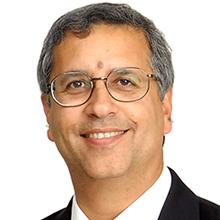Higher inflammation in older age is linked to weaker strength and lower muscle mass

Older people with higher levels of chronic inflammation are likely to have weaker muscles and lower muscle mass, according to a new study carried out at the University of Southampton.
Scientists from the University’s Medical Research Council Lifecourse Epidemiology Unit (MRC LEU) examined the relationship between levels of inflammation in early old age and grip strength, muscle mass and walking speed a decade later.
Although inflammation can arise due to injury or infection, chronic inflammation can occur in older age due to ageing processes within the immune system. The study, published in Calcified Tissue International and Musculoskeletal Research, showed that higher levels of C-reactive protein (CRP) were related to lower grip strength and higher levels of interleukin-8 (IL-8) were associated with lower muscle mass. CRP and IL-8 are both markers of higher inflammation.
In addition, the study found that higher IL-8 was also associated with increased risk of sarcopenia (a combination of low muscle mass and either weak grip strength and/or slow walking speed).
Lead author, Leo Westbury, researcher at the University of Southampton, said “Sarcopenia affects so many older people and can be extremely debilitating. This study highlights the importance of inflammation in the development of sarcopenia and its components. With an ageing population, sarcopenia rates are only going to increase - we hope that this study will help us develop potential ways of combatting the condition which will improve quality of life.”
Professor Cyrus Cooper, Director of the MRC LEU, said: “Lower strength in older age is a leading cause of disability worldwide and has huge economic costs for society. These results will inform the development of lifecourse intervention strategies to promote maintenance, and reduce loss, of muscle strength in later life.”
The study involved 336 men and women (aged 59-70 years when inflammation was assessed) from the Hertfordshire Cohort Study and was funded by the Medical Research Council.

